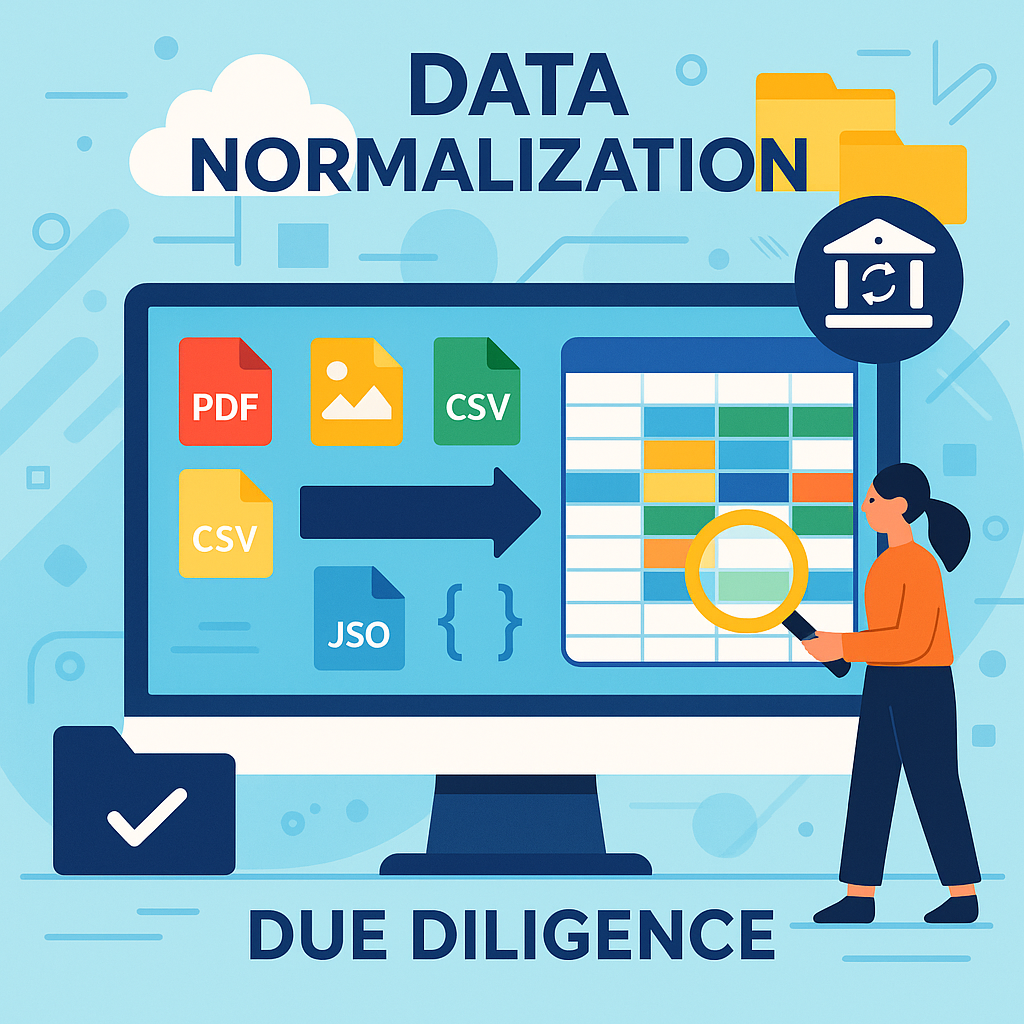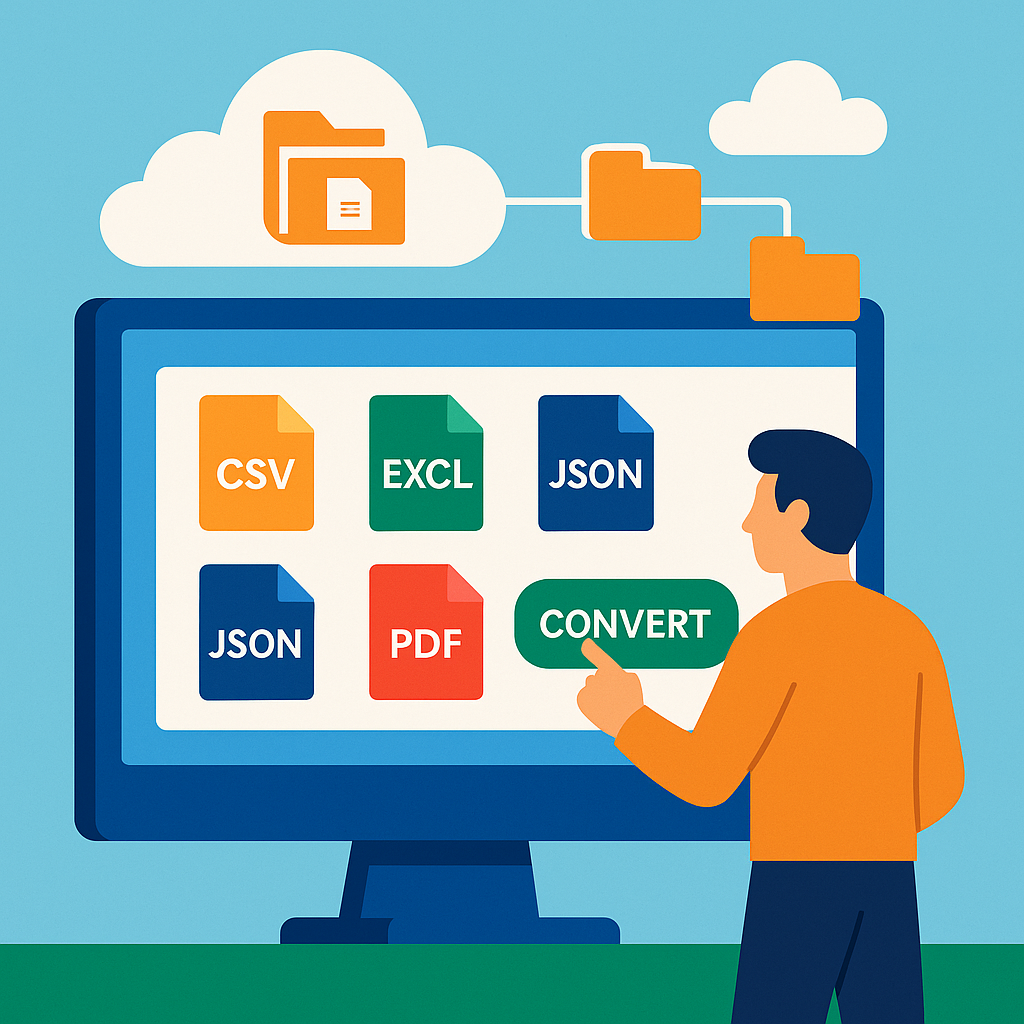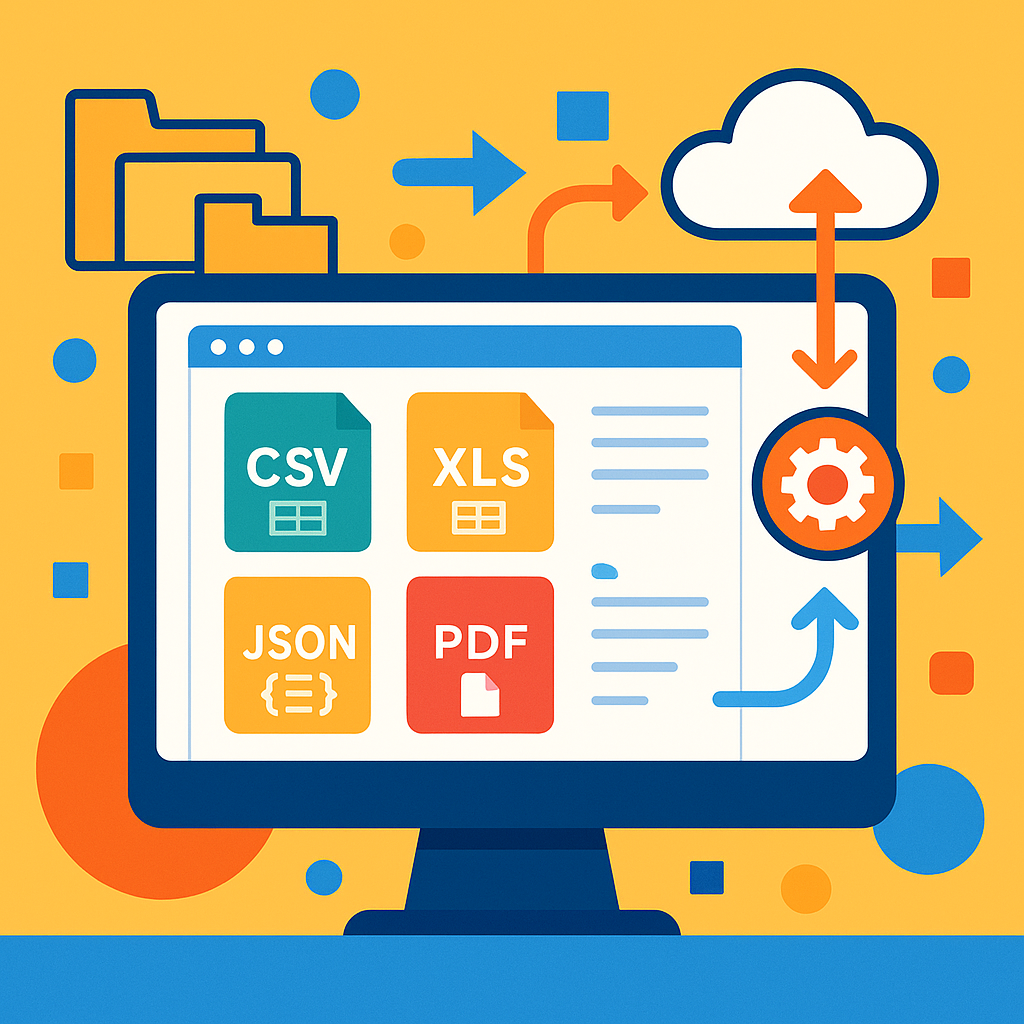How Normalized Data Formats Can Speed Up Due Diligence

How Normalized Data Formats Can Speed Up Due Diligence
In the fast-paced world of data management and automation, understanding how normalized data formats can enhance due diligence processes is crucial. With Rocket Statements, a platform designed to save time and money by automating the conversion of statements into spreadsheets, businesses can efficiently manage their documents in the cloud. This how-to guide will explore how leveraging normalized data formats can speed up due diligence, transforming your workflow into a streamlined, error-free process.
Understanding the Role of Normalized Data Formats in Due Diligence
Normalized data formats are essential in streamlining due diligence processes, making them more efficient and effective. By organizing data into a consistent structure, these formats allow for easier data analysis and comparison, which is crucial during due diligence. This structured approach reduces errors and speeds up the process, allowing teams to focus on critical decision-making.
💡 Tip: Using platforms like Rocket Statements can automate the conversion of various data formats, saving time and reducing manual errors.
How Normalized Data Formats Speed Up Due Diligence
Consistency Across Data Sources:
- Normalized data formats ensure that all data is presented in a uniform way, making it easier to compare and analyze.
- This consistency is vital when dealing with multiple data sources during due diligence.
Simplified Data Analysis:
- With data in a normalized format, analysis tools can quickly process information, leading to faster insights.
- This efficiency is particularly beneficial when using tools like Rocket Statements to convert bank statements into spreadsheets.
Benefits of Data Normalization in Due Diligence
- Reduced Errors: By minimizing the need for manual data entry, normalized data formats reduce the risk of human error.
- Improved Collaboration: Teams can work more effectively with standardized data, facilitating better communication and collaboration.
- Time Savings: Automating data normalization with tools like Rocket Statements allows teams to focus on analysis rather than data preparation.

Step-by-Step Guide to Automating Due Diligence with Rocket Statements
Learn how to utilize Rocket Statements to automate the conversion and management of data for due diligence purposes. By leveraging normalized data formats, you can streamline your due diligence process, saving both time and resources.
Step 1: Convert Statements into Spreadsheets
Start by converting your PDF and image statements into spreadsheets using Rocket Statements. This feature ensures that your data is in a normalized format, making it easier to analyze and manage.
- Go to the Rocket Statements dashboard
- Upload your PDF or image files
- Choose your desired output format (CSV, Excel, JSON, or PDF)
💡 Tip: For more detailed instructions on converting PDFs, check out our guide on converting bank PDFs to spreadsheets.
Step 2: Organize Documents in the Cloud
Manage your documents efficiently by using Rocket Statements' cloud storage capabilities. Create folders and subfolders to keep everything organized and easily accessible.
- Navigate to the document management section
- Create new folders for different projects or clients
- Drag and drop files into the appropriate folders
Step 3: Sync Live Transactions
Sync live transaction data from your bank accounts to ensure your due diligence process uses the most up-to-date information. This feature eliminates the need for manual data entry, reducing errors and saving time.
- Connect your bank accounts through Rocket Statements
- Enable live data sync
- Monitor transactions as they update in real-time
⚠️ Warning: Ensure your bank supports live transaction syncing by checking our list of supported banks.
Step 4: Export Data for Analysis
Once your data is organized and up-to-date, export it in a format that suits your analysis needs. Rocket Statements allows you to export files compatible with QuickBooks and other accounting software.
- Select the files you need to export
- Choose the export format (QuickBooks, CSV, Excel)
- Download the files for further analysis
By following these steps, you can harness the power of normalized data formats to enhance your due diligence processes, making them faster and more efficient. For more insights on data management and automation, visit our comprehensive guide.

Tips and Common Mistakes in Data Automation for Due Diligence
Automating due diligence processes can significantly enhance efficiency, especially when utilizing normalized data formats. Here are some practical tips to avoid common pitfalls:
Ensure Data Consistency 📊
- Use standardized data formats like CSV or JSON to maintain consistency across platforms.
- Regularly update your data sources to prevent discrepancies.
- Implement validation rules to catch errors early.
💡 Tip: Use Rocket Statements to convert your PDF and image statements into spreadsheets, ensuring consistent data formatting.
Avoid Over-Automation ⚠️
- Automate only the repetitive and time-consuming tasks.
- Maintain a balance between automation and manual oversight to catch anomalies.
- Regularly review automated processes to ensure they align with business goals.
⚠️ Warning: Over-automation can lead to missed errors. Regular checks are crucial.
Leverage Cloud-Based Solutions ☁️
- Utilize cloud platforms for document management to enhance accessibility and collaboration.
- Organize documents with folders and subfolders for easy retrieval.
- Sync live transaction data from bank accounts to keep information up-to-date.
💡 Tip: Our platform, Rocket Statements, offers cloud-based document management to streamline your due diligence process.

Enhancing Due Diligence with Normalized Data Formats
Understanding how normalized data formats can enhance due diligence processes is crucial for businesses aiming to streamline their operations. By adopting these formats, companies can significantly reduce the time and effort involved in data handling. The benefits of data normalization in due diligence are manifold, including improved accuracy and efficiency.
Automating due diligence with normalized data not only speeds up the process but also minimizes the risk of errors. Rocket Statements is a powerful tool that exemplifies how technology can simplify complex tasks. With features like converting PDF and image statements into spreadsheets and managing documents in the cloud, Rocket Statements helps users save time and money. Additionally, it supports data transformation into various formats such as CSV, Excel, and JSON, making it easier to integrate with systems like QuickBooks.